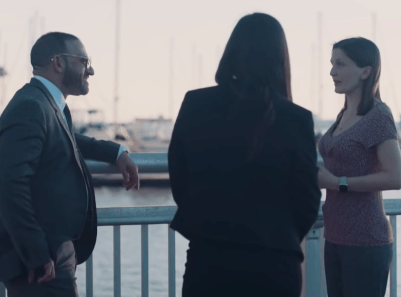Accidents can happen anywhere, but they’re much more common on busy highways where vehicles travel at very high speeds. Florida’s stretch of I-95 is a major transit artery that’s become infamous for its high collision rate, making it one of the country’s most dangerous places to drive.
Victims of a major car accident face painful injuries and the financial burden of medical expenses, lost income, and other costs. If you ever find yourself in this stressful situation, take care of your health by going to a doctor and protect your best interests by hiring a Florida car accident lawyer.
You will need a lawyer who understands all aspects of Florida’s no-fault car insurance laws that apply to your case, which can make the claims process more complicated.
This post goes over why I-95 is such a hotspot for car crashes and what you should do in the hours, days, and weeks after being involved in an accident.
Why Accidents Are So Common On Florida’s I-95

Florida’s section of I-95 covers 382 miles from Miami to the Georgia border, which makes this highway the primary link between all the large cities along the coast. I-95 has become known not only for having a lot of accidents but also for serious crashes that are more likely to result in catastrophic injuries or fatalities.
One notorious stretch of I-95 located in Fort Lauderdale is called the deadliest mile in America because it sees nearly 50 times the number of fatal car accidents compared to the average highway.
Many different factors contribute to I-95’s high crash rate. Still, it’s mainly the combination of a huge traffic volume and negligent driving behaviors which create dangerous situations for everyone on the road.
Some of the main causes include:
- The sheer number of vehicles: Some sections of I-95 can have as many as 12 lanes of traffic, which increases the risk for an accident to unfold and potentially spiral out to involve multiple vehicles.
- The presence of large trucks: Commercial trucks transporting goods across the country are a very common sight on I-95 and can pose a major hazard for smaller vehicles due to their size and weight.
- Unsafe driving: The actions of drivers on Florida’s I-95 contribute significantly to its high accident rate, with traffic violations like speeding, distracted driving, and drunk driving all likely to have disastrous consequences.
- Aggressive lane switching: One unique problem on I-95 is “lane diving,” which is the illegal practice of switching between the express and general lanes. Express lanes were added as a safety measure, but this misuse leads to more accidents.
Steps to Take Immediately After Being Involved in Car Accident on I-95
A serious car accident is always a terrifying experience. Still, it’s especially scary on a busy and chaotic highway like I-95, where there’s a real risk of a secondary collision that causes even more injuries.
If you find yourself in this very unfortunate situation, knowing what to do can you protect your physical safety and also lay the groundwork for a smoother recovery process when filing a compensation claim. Everything you do after an accident will matter later on during the legal process, so remember that even during an extremely stressful experience.
Here are some of the critical steps you should take a right after an accident on I-95:
Get Out of Harm’s Way and Call 911
If you’re in a vulnerable position on the highway after crashing, it’s essential to move out of the flow of ongoing traffic if it’s safe. Depending on the situation, this might mean steering the car to a safer location, like the shoulder or side of the road, or moving yourself and passengers to stand behind a guardrail. Otherwise, turn on your hazard lights to alert other drivers of the situation and wait in your car for emergency services to arrive.
Report the Accident to the Police
Florida law requires drivers to file a police report for any car accident that resulted in injury, death, or at least $500 worth of damage. You should call the police as soon as possible to follow the law because having an official record can be helpful when filing an insurance claim or pursuing a personal injury lawsuit.
If you don’t call the police while at the scene, either because you think it’s unnecessary or because the other party asks you not to for insurance purposes, you can cause yourself serious problems further down the line. For example, it can create the false impression that the collision wasn’t serious or allow the at-fault driver to give a conflicting account of the accident, which could no longer be easily disproven.
Cooperate with the police, but do not admit fault or make any statements that someone could interpret as accepting responsibility for the crash.
Preserve Evidence and Exchange Information With Other Drivers
If you’re out of immediate danger and not dealing with serious injuries, try to gather evidence of the scene using your smartphone. It’s common to forget important details about a chaotic event like a car accident, so having pictures, videos, and written notes can be extremely helpful.
Try to document information like:
- The position of the vehicles
- Visible damage on each car
- Physical evidence, like skid marks left behind on the road
- Contact information for witnesses, if any are available so that your attorney can reach out to them and collect a formal statement
- Notes with whatever you remember about the circumstances leading up to the accident
Exchange insurance information with the other drivers involved in the accident, as required under Florida law. Even though most accidents are resolved under the at-fault system, you’ll need these details to file a claim with your insurer.
However, you should not discuss the accident or admit fault while talking to other drivers. It’s very natural under these circumstances to want to make a statement like “I’m so sorry.” Unfortunately, this simple expression of sympathy can be used against you. Keep the conversation factual and don’t discuss issues of fault or blame because it’s ultimately not to your benefit.
Get Medical Treatment
The most important thing after a car accident is evaluating yourself and others involved for injuries and ensuring everyone receives appropriate medical care. Even if you don’t feel seriously hurt, you should see a doctor as soon as possible, preferably the same day or at least within 48 hours.
Remember that the shock and adrenaline from being in a collision have been known to mask pain intensity for several hours. Also, some common injuries from a car accident, like concussions, whiplash, or internal bleeding, won’t have symptoms right away but still require medical help as soon as possible.
Getting medical treatment soon after the accident is not only in your best interest in terms of your health but also helps document and substantiate your injuries, providing crucial evidence that increases your chances of recovering fair compensation.
Further, car accident victims in Florida are legally required to see a doctor for their injuries within 14 days of the collision to be eligible for pursuing any benefits, whether from their own Personal Injury Protection (PIP) policy or via a personal injury claim. Once claimants have missed this 14-day window, there’s little they can do to recover compensation.
Steps to Take in the Days, Weeks, and Months After an Accident on Florida’s I-95
There’s so much to think about in the aftermath of a serious car accident and many challenges, especially trying to recover from your injuries. The uncertainty about how to cover medical bills, vehicle repairs, and lost income from being unable to work can become a major burden for victims and their families.
Navigating the legal system is not easy, and there’s a mountain of paperwork involved, but you can take several practical steps to get the best possible outcome for your car accident claim. Some of the ways you can place yourself in a strong position include:
Notify Your Insurance Company and Understand the No-Fault System
Under Florida’s no-fault insurance system, filing a PIP claim with your insurer is the first source for recovering compensation for your damages and potentially the only one you’ll have available, regardless of who caused the accident. Notify your insurance company as soon as possible after the accident because most policies set deadlines for how long policyholders have to file.
Even though you’re dealing with your insurer, prepare for it to dispute or undervalue your damages simply because that’s how these businesses operate.
You need a lawyer who understands your policy and any aspects of Florida’s car insurance laws that might affect your case.
For example, car accident victims with serious, permanent injuries may meet the serious injury threshold. That means they would be entitled to pursue a personal injury claim outside the no-fault insurance system, which may be the best option to cover all their damages. Having an experienced car accident attorney by your side can help you understand the right course of action for maximizing compensation in your unique case.
Listen to Your Doctors Throughout Your Recovery
Whether it’s keeping up with physical therapy or avoiding strenuous activity too quickly after the accident, you should follow all medical advice as closely as possible. Not only will listening to your doctors help you heal more quickly, but it’s also essential for proving your damages.
The claimant’s medical evidence is closely scrutinized throughout the legal process, and it can make or break your case. If you’re not doing what you need to get better, insurance companies can argue that you’re exaggerating your injuries from the accident and how they’ve affected your life.
Document Your Damages
The financial ripple effects of a serious car accident can be incredibly wide-ranging. Keeping excellent records of all these expenses is crucial for helping claimants recover as much compensation as possible. You should organize a file with all medical bills, estimates for repairing or replacing your vehicle, and documentation for lost income. Other direct costs from the accident, like renting a car or using home health care services, should also be part of your claim.
PIP policies are only designed to cover economic damages. However, car accident victims who file a personal injury claim can also seek compensation for the intangible, non-economic costs resulting from the crash. Maintaining a personal journal throughout the recovery process is the best way to demonstrate damages like physical pain, emotional distress, and a decreased quality of life.
Hire an Auto Accident Attorney

When the worst comes to pass while traveling down Florida’s I-95, having a skilled car accident attorney helping you navigate the claims process can make the difference between getting your damages covered or facing all the consequences on your own.
On average, car accident victims who have legal representation will recover far more than claimants who deal with insurance companies directly. This is because experienced lawyers are very familiar with insurers’ strategies to minimize payouts and can provide strategic support to help you level the playing field.
Whether it’s reconstructing the events leading up to an accident, substantiating your damages, or handling all the paperwork, the right legal team can be a lifeline throughout the process. Your attorney will negotiate with insurers to secure the best possible settlement offer or even escalate your claim to a personal injury lawsuit.
Being involved in an accident on Florida’s I-95 will likely turn anyone’s life upside down for a long time, especially while navigating the physical and financial toll. Making informed decisions and finding the right resources is crucial for taking control of a difficult situation and securing the compensation you need to get life back on track.
Schedule A Free Consultation